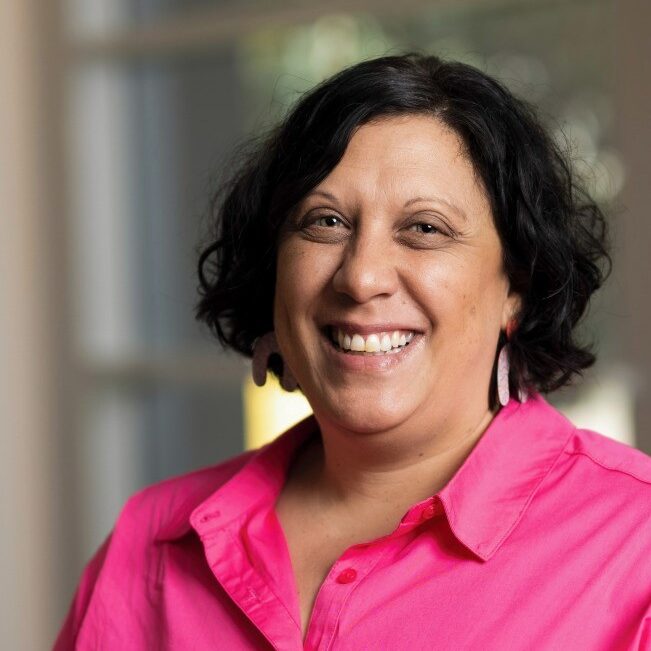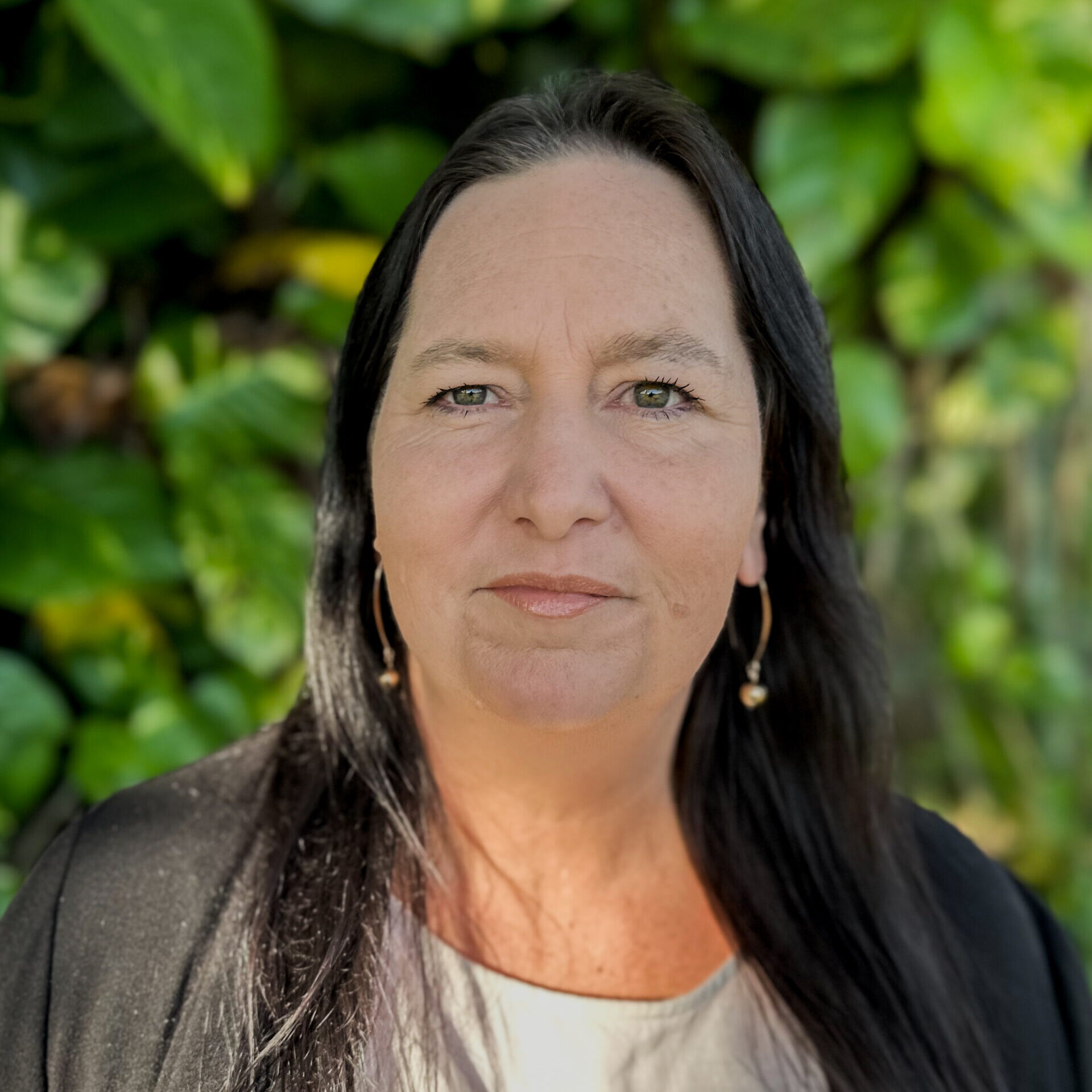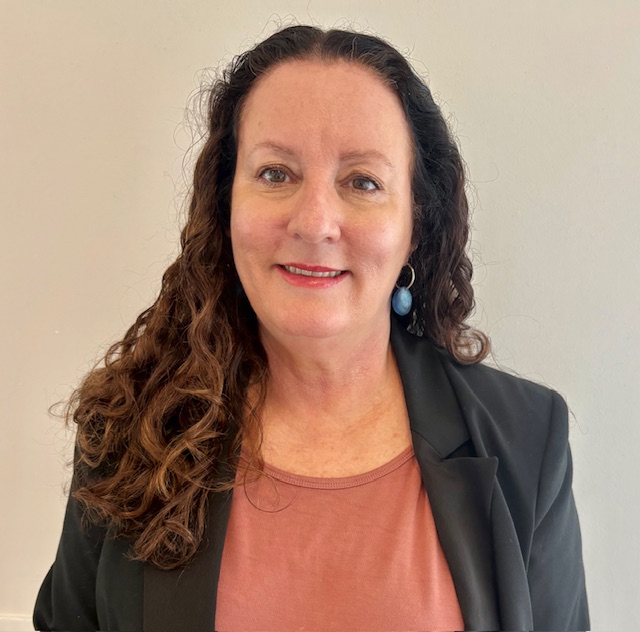Joseph Athiende
Exploring the experience and the impact of positive behaviour supports from the perspective of high school students on the autism spectrum, their parents and teachers in Queensland
The implementation of Positive Behaviour Support (PBS) within secondary school education systems varies with significant variable impact on the engagement, well-being, and educational outcomes for students on the autism spectrum. While education policies guiding the practices and processes in supporting students’ behaviour promote a proactive approach to behaviour support, educators struggle to effectively meet the basic psychological needs (autonomy, competence and relatedness) of students on the autism spectrum who often experience significant behaviour challenges. This qualitative study will explore the experience and the impact of PBS from the perspectives of secondary school students on the autism spectrum, their parents and teachers. This empirical investigation will be informed by the Basic Psychological Needs Theory (BPNT), which is embedded within the self-determination theoretical (SDT) framework.
Principal Supervisor: Associate Professor Sofia Mavropoulou
Associate Supervisor: Dr Glenys Mann
Elise Bray
Exploring how students on the autism spectrum experience learning in contemporary flexible learning spaces
School learning environments are changing, with innovative and flexible spaces being designed in an effort to improve student outcomes and 21st century learning skills such as collaboration and problem solving. Within these new spaces, students encounter adjustments to the learning environment that often include increased incorporation of technology, changes to teaching practices and social and sensory elements of the environment. For students on the autism spectrum (ASD) who may experience difficulty with processing changing environments and stimuli, the increased collaborative pedagogy, noise levels and movement is under researched and may intensify anxiety levels, impacting their learning, academic performance and wellbeing.
With the intention of ensuring school learning environments promote inclusion and wellbeing for all students, this study will focus on capturing the experiences of students with ASD in contemporary flexible learning spaces. Using a qualitative approach, the interaction of the students with their peers, teachers and their learning environment will be explored as they navigate their learning within these spaces. Student perspectives and experiences of potential barriers or enablers will provide insights that can inform future changes in policy and practice, importantly addressing the need to prioritise student voice in teaching, learning and educational design considerations.
Principal Supervisor: Professor Beth Saggers
Associate Supervisor: Dr Natalie Wright
Melissa Close
The evolution of systemic reform initiatives for student mental health and wellbeing: An international comparative case-study
Educators play a crucial role in preparing students for an uncertain future, with rapid and profound social, economic, and environmental changes worldwide due to globalisation and developments in technology. Providing students with more than just academic instruction is vital for their mental health and wellbeing. Social and emotional learning (SEL) is an approach that aims to address and attend to the social and emotional development and wellbeing of children. The study aims to characterise the evolution of SEL within and across the United States and Australia to expand understandings of how SEL is operationalised in both contexts, and whether these processes foster adequate learning and support for student mental health and wellbeing. The study will also seek to provide insight into improved SEL implementation in each context to inform future practice.
Principal Supervisor: Professor Linda Graham
Associate Supervisor: Professor Jenna Gillett-Swan
Associate Supervisor: Dr Callula Killingly
Shanelle Fiaalii
A First Nations Pedagogical Framework for Embedding Aboriginal and Torres Strait Islander Perspectives in the Teaching of English
There is an expectation in the Australian Curriculum that teachers embed Aboriginal and Torres Strait Islander
Histories and Cultures through the cross-curriculum framework based on Country/Place, Culture, and People. To do
this effectively, they must have a deep understanding of Aboriginal and Torres Strait Islander ways of knowing,
being and doing. This can only be achieved by developing a relationship with Country and Community.
This qualitative study will adapt the Country, community and Indigenous research framework by Bobongie-Harris,
Hromek and O’Brien (2021) for use with English teachers in an Independent school system. It will use the
Indigenous methodologies of storytelling and yarning. With a local elder guiding them, the participants will
engage in an on-Country experience to determine the impact that connection to Country and Community has on
attitudes to embedding, and understanding of, Aboriginal and Torres Strait Islander perspectives. The research
project will be analysed through Decolonising Race Theory.
Principal Supervisor: Dr Francis Bobongie-Harris
Associate Supervisor: Dr Radha Iyer
Sentha Govin-Vel
Association between Overparenting, Social Media Use and Anxiety
This research aims to conduct a correlational study of overparenting on social media and anxiety in both parents and children in an Australian context. The research will include parents and emerging adults aged 18 to 20 using a mixed method research design. Focus groups for parents and emerging adults will be conducted to develop a survey on overparenting on social media. The findings could help to raise awareness and deepen the understanding of the complexity of parenting styles and social media use, and their impact on emerging adults and their parents. The impact of the research seeks to inform parents on how parenting styles both enhance and limit their children’s future, specifically with regards to their mental wellbeing, by making recommendations on parenting strategies.
Principal Supervisor: Professor Marilyn Campbell
Associate Supervisor: Dr Stephanie Tobin
Kami Hazlewood
Migrant teacher professional identity for Indigenous education
The growing global teacher demand and mobility has seen Australian schools rely on increasing numbers of migrant-background teachers. Migrant-background teachers in Australia work in a complex cultural interface when engaging with Indigenous education due to Australia’s past and present sociopolitical environments which have impacted the inclusion of Aboriginal and Torres Strait Islander peoples and knowledges in the Australian education system. There is a need to understand how migrant-background teachers have reflexively navigated Australian identity narratives, their workplace, and the education system and the interactions between them for their work in Indigenous education. Migrant teacher standpoint and how it interacts with these influencing factors, potentially impacts professional identity for Indigenous education. This research will explore the external and internal influences on migrant teacher professional identity work for Indigenous education.
Principal Supervisor: Professor Jill Willis
Associate Supervisor: Dr Francis Bobongie-Harris
Belinda Howard
Career development policy in Australian secondary schools: A policy analysis
This research investigates the presence and nature of career development policy in Australian secondary schools, with a focus on whether such policy exists and how it is articulated across jurisdictions. Drawing on Howlett and Cashore’s (2022) six-element policy framework, the study employs qualitative document analysis (Morgan, 2022) and reflexive thematic analysis (Braun & Clarke, 2006) to examine national and state-level policy texts. The research aims to generate evidence-informed recommendations to support the development of coherent, equity-oriented career development policy in Australia. By clarifying the policy architecture underpinning career education, the study seeks to strengthen systemic support for young people’s transitions and contribute to more equitable post-school outcomes.
Principal Supervisor: Dr Leanne Crosswell
Associate Supervisor: Dr Deborah Munro
Jacinta Lisec
Facilitating student voice to understand how assessment experiences influence academic wellbeing and achievement
Students’ assessment experiences have been found to influence their conceptualisations of academic wellbeing and achievement. Also, research from the last few decades indicates ongoing issues of decreasing wellbeing and achievement for middle years students. This research project will facilitate student voice, for students to share experiences about classroom summative assessment with school peers, teachers and leaders. Through co-designed contributions, students will conceptualise how assessment experiences influence their academic wellbeing and achievement. Findings aim to identify authentic student voice processes for school implementation, to strengthen assessment practices that support student academic wellbeing and achievement.
Principal Supervisor: Professor Jenna Gillett-Swan
Associate Supervisor: Professor Jill Willis
Associate Supervisor: Dr Chris Koch
Andrew Manda
An exploration of school dropout of learners with learning difficulties in Malawi: A nested ecological inquiry
Early school leaving among learners with disability, including those with learning difficulties in primary and secondary schools, remains a persistent problem in Malawi, despite efforts by the government and education stakeholders. Utilising a concurrent mixed-method design, this qualitative study, grounded in an interpretive paradigm and drawing on Bronfenbrenner’s ecological systems theory, will analyse national education policies and will explore key stakeholders’ perspectives regarding the causes, educational supports, and consequences for students with learning difficulties leaving school early in Malawi. Through a nested ecological inquiry approach, insights from policy document analysis and findings from the reflexive thematic analysis of stakeholder perspectives gathered through focus group and interviews will contribute to our understanding of this critical educational matter.
Principal Supervisor: Associate Professor Sofia Mavropoulou
Associate Supervisor: Professor Linda Graham
Helen McLennan
Agency in Education: Perspectives of Young Neurodivergent Children
Children’s agency provides them with a sense of empowerment and allows them influence over their everyday environments. Giving children voice in matters relevant to them can support their agency when engaging in their everyday environments. Historically, children in early primary school have had less opportunity for agency in education. This is particularly the case for neurodivergent children, who think and perceive the world in different ways. My research will explore the concept of agency in education by listening to the perspectives of neurodivergent children in the early years of primary school.
Principal Supervisor: Professor Beth Saggers
Associate Supervisor: Professor Jenna Gillett-Swan
Anita Newell
Agency in Education: What educational decisions are uniquely influenced by urban vertical school (UVS) spaces and what has been the impact on student agency?
Student agency, though a global educational priority, remains a challenging concept to both define and implement. Despite these challenges, student agency ideals have significantly influenced the design of vertical schools in Australia. These innovative high-rise educational buildings on compact urban sites present unique structural and cultural conditions for learning. They also offer a valuable case study for understanding enabling and constraining factors that influence educational decisions impacting student agency.
Characterised by their close-knit environments where students and teachers share spaces in close proximity, these urban vertical schools are designed to foster student agency through structural permutations such as, innovative curricula, flexible learning spaces, and digital integration. Importantly, whilst this study asserts that teachers cannot directly give students agency, it contends that they can create opportunities for students to make meaningful choices and take action on things that matter to them. In addition, it also understands that for teachers to design learning experiences that cultivate student agency, they must first have a clear understanding of what agency is and how to leverage the affordances of their environment to encourage it.
My research gives voice to the experiences of teachers in urban vertical schools and, through interviews and observations, explores how these unique school spaces influence their decision-making and shape the agency opportunities available to their students.
Principal Supervisor: Associate Professor Nick Kelly
Associate Supervisor: Professor Jill Willis
Associate Supervisor: Dr Prue Miles
Shannon O’Brien
Factors Impacting on Australian School Staff Intervention in Bullying Incidents
Bullying among school students is an issue that is widespread across the globe. The potential consequences of bullying at school, both short and long term, can be dire for both the person being victimized and the person who is doing the bullying. These consequences include poor academic performance, school attendance issues, drug and alcohol problems, and mental health concerns including suicidal ideation. Bullying can be considered a public health issue.
This study will initially investigate what school staff members are involved in managing cases of bullying. It will then explore how the identified staff knowledge, attitudes and self-efficacy in respect to bullying are associated with the interventions they employ. This project will utilize an exploratory sequential mixed methods design. The findings from the study aim to inform teacher training and professional development on the topic of bullying.
Principal Supervisor: Professor Marilyn Campbell
Associate Supervisor: Dr Chrystal Whiteford
Lauren Piltz
Exclusionary school discipline and justice system involvement: Identifying opportunities to disrupt the school-to-prison pipeline
This project uses linked administrative records from education, justice, health, and community services to characterise the use of exclusionary school discipline practices within a large NSW population cohort, and to examine the relationship of disciplinary exclusion with different forms of justice system involvement. The project expects to deliver new information to inform policy makers, educators, criminologists, and psychologists regarding opportunities to avert the adverse outcomes of exclusionary discipline practices in Australian schools.
Principal Supervisor: Professor Kristin Laurens
Associate Supervisor: Professor Linda Graham
External Supervisor: Professor Melissa Green
External Supervisor: Professor Kimberlie Dean
Ying Sun
Promoting self-determination of young learners on the autism spectrum: Exploring early childhood educators’ knowledge, understanding, perceptions, and teaching practices in Australian inclusive settings
Self-determination is recognised as an important personal and social capability in the Australian Curriculum and teachers play a key role in promoting self-determination in all students from the early years of schooling. The aim of this study is to explore Australian early childhood teachers’ knowledge, understanding and practice in relation to the development of self-determined skills in young learners on the autism spectrum in inclusive educational settings. To achieve this aim, the current project will apply an explanatory sequential mixed-method design, utilizing surveys (phase 1) and semi-structured interviews (phase 2) with early childhood educators supporting students on the autism spectrum. It is anticipated that the findings of the study will inform teaching practice and professional development opportunities for early childhood teachers to better support the development of self-determination skills in young children on the spectrum in inclusive contexts.
Principal Supervisor: Associate Professor Sofia Mavropoulou
Associate Supervisor: Professor Beth Saggers
Loren Swancutt
Improving the capacity of classroom teachers to include students with complex learning profiles in grade-level academic curriculum
Students with complex learning profiles benefit academically and socially from inclusion in the grade-level academic curriculum alongside peers. However, these benefits are often unrealised, with many students encountering exclusion or segregation due to persistent barriers rooted in bias, societal prejudice, and systemic constraints. Challenges with realisation also persist because classroom teachers must interpret curriculum, plan equitable pathways, and design accessible instruction while navigating accountability pressures, workload intensification, and limited professional learning and guidance. As a result, this study developed and tested the Inclusive Academic Curriculum Framework (IACF) – a professional learning, curriculum planning, and instructional intervention aimed at improving the capacity of classroom teachers to include students with complex learning profiles in grade-level academic curriculum. Using a convergent mixed-methods multiple case study, five secondary teachers in two North Queensland schools engaged with the IACF. Interviews, surveys, curriculum artefacts, and classroom observations indicated strengthened beliefs about curriculum entitlement, deeper knowledge of inclusive curriculum design, clearer planning processes, and greater use of inclusive pedagogies.
Principal Supervisor: Professor Linda Graham
Associate Supervisor: Dr Callula Killingly
Claire Ting
Self-advocacy and access to assessment adjustments: Exploring the knowledge and experiences of Queensland high school students with dyslexia
Students with disability, including dyslexia, have the legislated right to access education on the same basis as their peers. Australian schools are required to provide reasonable adjustments to enable equitable access to students with disability. Schools are also required to consult students about their preferred adjustments to assessment. Despite these legislative obligations, it is well documented that students with disability face barriers to fair assessment in high school, and are not always consulted about their preferred adjustments.
According to the theoretical literature, when students with disability understand their rights and entitlements, they are likely to be empowered to self-advocate for reasonable adjustments to assessment. However, the perspectives of high school students with dyslexia have rarely been sought in this body of research. Therefore, this research project will use online interviews and focus groups to talk with Queensland high school students with dyslexia about their experiences receiving assessment adjustments, and how their experiences could be improved. By listening to the experiences of students with dyslexia this study aims to enhance our understanding of barriers and facilitators to student self-advocacy, and to gain insight into how students with dyslexia would like to be supported to self-advocate for reasonable adjustments to assessment.
Further information can be found on the project website http://research.qut.edu.au/dyslexia
Principal Supervisor: Associate Professor Sofia Mavropoulou
Associate Supervisor: Professor Jill Willis
Associate Supervisor: Dr Haley Tancredi
Carolina Vidal
Accessible peer assessment: improving inclusion in Australian schools
Improving equity and fairness has been a growing priority for education, in the field of assessment, one of the most recognizable students led strategy for it is peer assessment. Peer assessment is a complex process that involves a dialogic relationship between teacher and students which enhances metacognitive thinking. Also, peer assessment involves cognitive skills and social demands that could imply additional barriers for students with learning difficulties. There is growing recent research that shows that assessment interactions have the potential to overcome these barriers. Yet, little is known how peer assessment enables all students to learn, or how these interactions are designed and implemented in inclusive classrooms. This study aims to address these gaps by collecting data from teachers and students in Australian classrooms. The data collection will focus on the process where teachers work collaboratively in Professional Learning sessions, designing and implementing peer assessment strategies with their pupils to make this process more inclusive for all students.
Principal Supervisor: Professor Jill Willis
Associate Supervisor: Associate Professor Nerida Spina
Menglan Wang
The fatherhood role perceptions and fathering practices of fathers of children with ASD in Australia.
Autism Spectrum Disorder (ASD) is a severe neurodevelopmental disorder, and some autistic children may require support and assistance throughout their entire lives. Fathers’ involvement in parenting positively impacts autistic children’s communication, social, and emotional skills. Within the context of raising children with ASD, mothers are typically identified as the primary caregivers, while fathers are often less involved in the practical and emotional aspects of daily care. However, little is known about how fathers perceive and enact their fatherhood over time. The aim of my study is to explore how men perceive themselves as fathers of children with autism across three stages: before, during, and after their child’s autism diagnosis. Building on this, the study also seeks to examine how fathers’ perceptions of their role are associated with the fathering practices they adopt in the context of raising a child with autism in Australia. My research examines how fathers of children with autism perceive and enact their roles before, during, and after diagnosis. The objective of C4IE enables me to amplify fathers’ voices in research, contributing to evidence that can inform both policy and practice.
Principal Supervisor: Professor Marilyn Campbell
Associate Supervisor: Dr Meegan Brown

















